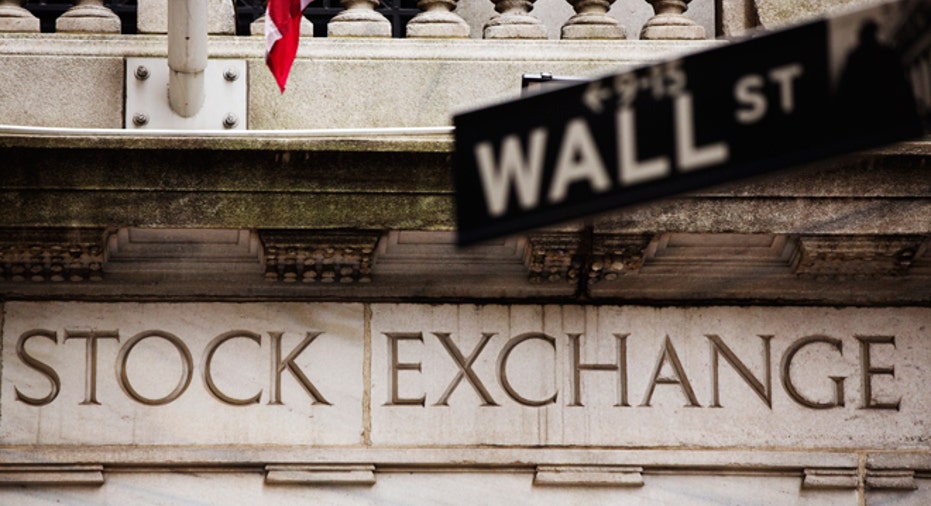Hollywood Prefers Wall Street Bad Boys

I wonder if there’s an All the President’s Men-type movie to be made about Wall Street corruption?
In that 1976 movie Dustin Hoffman and Robert Redford portrayed Carl Bernstein and Bob Woodward, the two Washington Post reporters who doggedly pursued the Watergate political scandal through President Nixon’s resignation.
Although apparently embellished to adhere to a screenplay likely written in Hollywood, the movie is undeniably exciting and fun to watch.
Could a similar movie be made about mid-level federal prosecutors or Securities and Exchange Commission bureaucrats doggedly pursuing Wall Street con men and masters of high-finance as the latter play dice with the world’s economy at stake?
The reason I ask is that Martin Scorsese’s latest movie, The Wolf of Wall Street, has created quite a buzz through its graphic retelling of the ups and downs of a Long Island penny stock manipulator named Jordan Belfort.
Belfort opened a boiler room on Long Island in the late 1980s, gave it a fancy name – Stratton Oakmont – and used the money he conned from naive clients to fund the kind of life that would have exhausted even the hardiest of veteran Wall Street party boys.
Scorsese either glorifies or condemns Belfort’s depravity in the film, depending on who you ask.
In any case, the point is that bad guys often make for more compelling story-telling than good guys. No one knows this better than Scorsese, who’s built his considerable reputation as a filmmaker depicting the lives of some very bad guys. Think Mean Streets, Taxi Driver, Raging Bull and Good Fellas.
Hollywood likes the occasional whistle-blower story. The Insider was a well-made 1999 movie starring Al Pacino and Russell Crowe in which Crowe played tobacco-industry whistle-blower Jeffrey Wigand.
A big problem with whistle-blowers is that they often slave away in a back office somewhere doing the day-to-day scutwork that quietly keeps the world spinning around. Sherron Watkins, the Enron executive who spoke up about accounting shenanigans well ahead of Enron’s spectacular collapse in 2001, has a fascinating story that Hollywood hasn’t told in a movie. Perhaps because it doesn’t easily translate as a movie.
No Hollywood Heroes in Financial Crisis
Another problem with whistle-blowers is that they often have self-serving motives that don’t fit well into the black-and-white, good-versus-evil narratives favored by Hollywood.
The Fifth Estate, a movie released earlier this year about Julian Assange, the eccentric founder of whistle-blower Web site WikiLeaks disappeared without gaining much of an audience partly because Assange is apparently not a very likable guy and his motives for doing what he does are a bit murky.
The story of Harry Markopolos, an independent accountant in Boston who detected Bernard Madoff’s fraud a decade before Madoff was arrested, seemed tailor-made for Hollywood. Markopolos spent years telling anyone who would listen – primarily regulators at the Securities and Exchange Commission -- that Madoff was running a Ponzi scheme, but no one listened.
But Markopolos, similar to Assange, is a bit of an odd duck, prone to conspiracy theories and self-aggrandizing anecdotes. Besides, Markopolos’ whistle-blowing played no role in exposing Madoff’s massive fraud. So there’s no happy Hollywood ending there.
There’s a potential movie if the government ever indicts SAC Capital founder Steven A. Cohen. He makes a pretty good villain, having accrued a $9 billion personal fortune primarily, if federal investigators are to be believed, through an investment strategy that depended almost exclusively on illegal insider trading.
Maybe’s there’s a team of young prosecutors doggedly pursuing Cohen whose story would make for a compelling film some day.
The biggest problem for current filmmakers looking to make a movie about Wall Street’s prominent role in the recent financial crisis is that any movie about a big Wall Street executive being prosecuted for his or her role would be fictitious. No high-ranking Wall Street executive has been charged with a crime for misdeeds in the run up to the crisis.
So there are no heroic Hollywood narratives on either side of that story. And there may never be unless Hollywood makes one up.